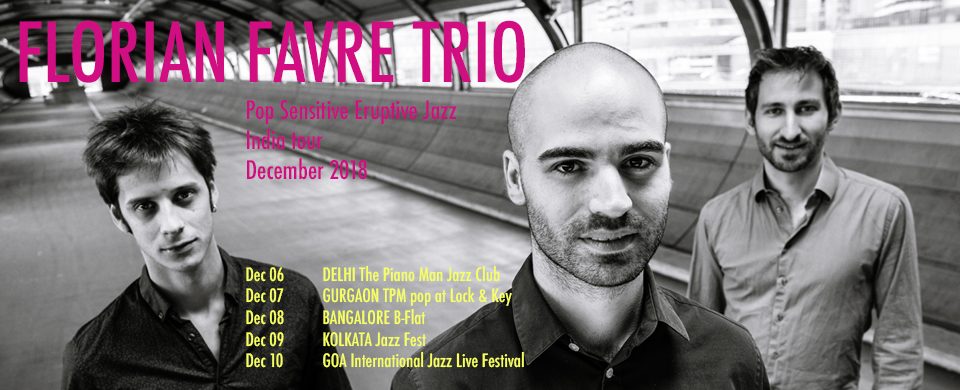Swiss Pianist-Composer Florian Favre to Tour India This Month
The musician once wanted to play pro soccer, but nowadays, he finds
himself touring the world to play jazz
Swiss pianist-composer Florian Favre thought, for the longest time, that he was going to be a professional soccer player. In fact, until he turned 25, that goal, pun intended, was well within his reach–he even attended a specialized school to help him realize his dream. Favre, now 31, is deep into a career as a jazz pianist and composer, and his dulcet, delicate arrangements somewhat belie his once-sportier ambitions.
Favre plays in a trio with French drummer Arthur Hnatek and bassist Manu Haggman, who, like Favre himself, is from Switzerland. The trio will make their way to India this December for the first time, playing gigs across New Delhi, Gurgaon and Kolkata before finishing up their mini-tour at Goa’s International Jazz Festival.
Rolling Stone India caught up with Favre, who spoke to us over the phone from his home base, Zurich, to tell us about the inspiration behind his songs, his classical influences and how music ultimately beat out soccer.
Is this your first time in India?
It’s my first time. The trio of us, for us three, this is the first time.
What are you most excited about for performing in India?
I think I’m excited about discovering the whole thing, the whole country. As you said, I’ve never been to India, so it’s everything. Everything is exciting. Getting the chance to meet the people, a new culture that I don’t know so well. I’m really looking forward to seeing the reaction of the people about our way to think in music, our way to music. Everything, the food to the people, to the culture, and everything. It’s gonna be a big package.
When did you start playing the piano?
I was eight. It was at the same time I was playing a lot of soccer. My parents thought it was good to have a good balance between sports and music.
So did you keep up the soccer? Do you still play?
No [laughs]. But I wanted to be a professional soccer [player]. Until the age of 25, I was playing soccer, and I was in a special school because of soccer, because I wanted to be a professional soccer player. And I was close to it, but then–which is a great thing–I met a lot of musicians in this school where I was for the soccer. And they were so passionate, and I don’t know, slowly, music took the advantage.
In your album, one of the songs is called “Cobble Hill.” Is that Cobble Hill in New York City, in Brooklyn?
Yeah! I lived there in 2015, and the vibe there was really a good vibe. Really, really, not so fast. Like, we could think about New York. It was a really nice neighborhood. It had this kind of happy vibe, and I was–how do you say that?–inspired to create music.
You started playing music at the age of eight, but when did you start getting into composing?
I think it was really soon [after]. As soon I discovered the blues scales, I did my first composition. I don’t know if [I can call it a] composition, but that was music that was coming out of me, and it was perhaps three, four years after beginning [to play] classical music. That was around 12, 11, something like that. Then it went more and more, and I studied composition at the jazz school in Berlin, and then I studied a master’s in composition. It was a chance to develop these skills, and I am so happy to have done that.
Who would you say your influences are as a composer?
Nice question! Because a lot of people ask who influences me as a piano player. I love Stravinsky, Ravel, and Ligeti. I love Ravel for his beautiful harmonies and because he’s a master of arrangement and orchestration. I love Stravinsky because [he] makes out of simple folklore melody a complex piece like “The Rite of Spring,” for example. Ligeti because he’s really special and he creates a crazy atmosphere.
I definitely heard a little bit of a Brad Mehldau influence. Would you say that’s correct?
Yeah, it’s difficult not to be influenced by him. It was the same with Beethoven. It was difficult not to be influenced by Beethoven back in the day, and now it’s kind of the same with Brad Mehldau.
After India, are you going back to Switzerland, or are you heading out on another trip?
I’m going back for one day [to] Switzerland and then I’m going to New Orleans for two months and a half. I [want to] go there and write a piece for orchestra and trio, that’s the goal.




